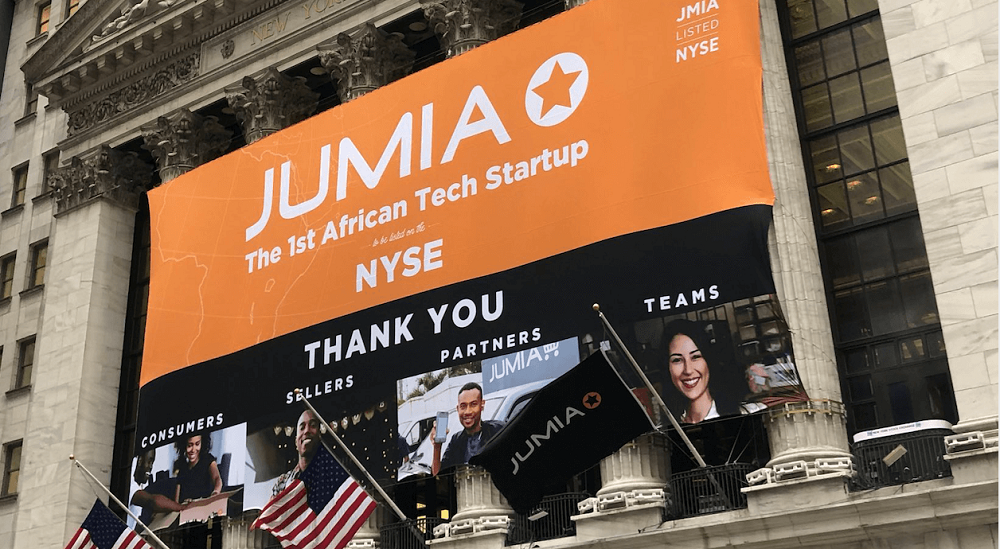Africa-focused e-commerce giant, Jumia is enjoying a stock market rally that has seen it hit record highs, with shares trading at $59.96 at the time of this article.
In April 2019, Jumia, the African e-commerce company with a presence in 15 African countries, listed on the New York Stock Exchange (NYSE). The Initial Public Offering (IPO) made Jumia Africa’s newest unicorn.
The initial excitement over Jumia’s listing glossed over some underlying concerns. Many critics said the company spread itself too thin and there were concerns about how it was burning cash. While it is common for hyper-growth companies to be unprofitable for years, Jumia’s business model came under scrutiny.
Its first-party marketplace model was expensive and for years the company lost money on every delivery. Still, the Jumia train chugged on unperturbed until the entrance of the short-seller, Andrew Left.
Allegations of fraud tank Jumia’s IPO
Two weeks after a glamorous IPO saw share prices jump to as high as $26, Andrew Left, the founder of Citron Research and a popular short-seller, accused the company of fraud.
In addition, he pointed out discrepancies in Jumia’s SEC filing using the company’s confidential investor presentation from 2018. Reports at the core of the allegation stated that Jumia was inflating customer numbers.
Left released a video where former employees alleged that the company hired agents to make fraudulent orders. One such worker in the video said, “It is not like a real order from a customer. Some of these orders are placed by the customer service agents who have targets to ensure that they place like a hundred orders per day.”
The allegations led to a class-action lawsuit which the company recently settled out of court for $5 million. While companies settle lawsuits every now and then, reinstating investor confidence is another matter.
A fall from grace
This BBC report from April 2020 chronicled how Jumia, once a unicorn, had taken a beating after Left’s accusation. While other critics hinted at some allegations of fraud in the past, Left’s clout made all the difference.
Over the course of the year, there would be numerous articles about Jumia along the same lines. Rebecca Enonchong, one of Jumia’s early critics, told the BBC, “the hubris of the IPO has led way to the reality of a bad business model. The stock price, hovering under $3, is a reflection of that.”
The company’s valuation at one time was down to $400 million and for many, it became a cautionary tale. A year later, Jumia has halted its bad run and is trading at four times its IPO price. It is in part due to a change in their business model, but mostly because of a change of heart from Left.
Andrew Left’s reversal
Jumia deserves a lot of credit for how they responded to the crisis. It closed its operations in Rwanda, Tanzania, and Cameroon and focused instead on creating a healthy balance.
It swapped its expensive first-party market model for a third-party model and cut its advertising budget. It de-emphasised high ticket items like phones and laptops. Today, Jumia focuses on basic household items.
The results were instant, losses started to slow and slowly, share prices began to climb. The pandemic also created investor optimism around e-commerce companies. From June 2020, Jumia stock began to climb, reaching a high of $16 per share.
Q2 results soon flattened those gains with the market wiping $800m from Jumia’s market cap after the company’s gross merchandise value (GMV) didn’t excite investors. Many failed to focus on the fact that Jumia had finally stopped losing money on its orders and that it was now selling cheaper everyday items.
In the end, what moved the market was a reversal by Andrew Left. In October, Left publicly changed his position on Jumia, claiming that the company had solved issues of fraud.
He also said he was taking a long position on Jumia at $50 per share. It was only after he talked about his long position that Jumia’s share price hit double digits and never looked back. But last week’s rally has taken Jumia to the cusp of $60.
It’s possible to argue that the rally has something to do with Left. In an interview with Benzinga on January 21, he is clear about Jumia’s potential.
“When Jumia was trading at a market cap of where it was and I looked at their potential, I was able to look past the initial problems that they had about fraud or history.” Citron Research, Left’s company has also set a new target price of $100 for Jumia.
It’ll be interesting to see if Q4 results will test investors’ belief in Left or if Jumia will continue this dizzying rally.
Disclaimer: This content is for informational purposes and is NOT investment advice. Before making any investment, you should do your own analysis.





















